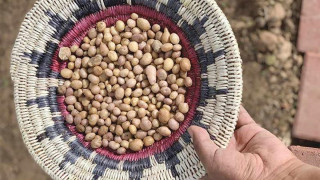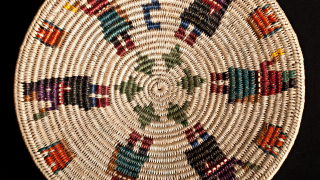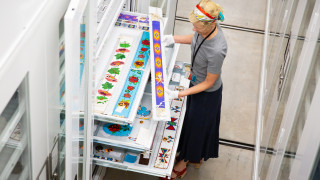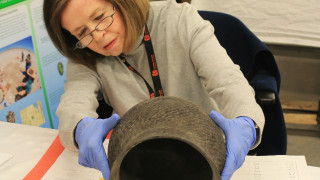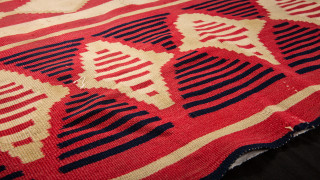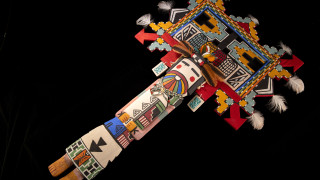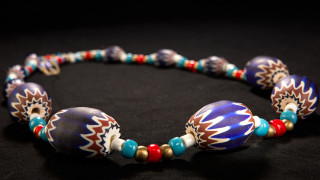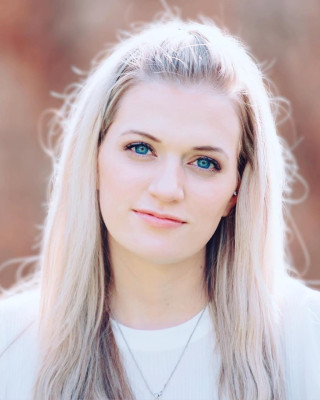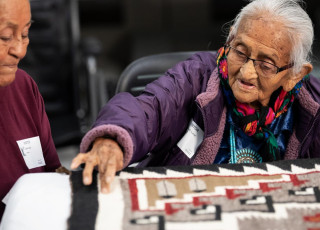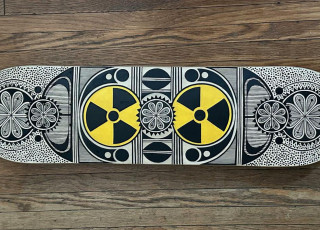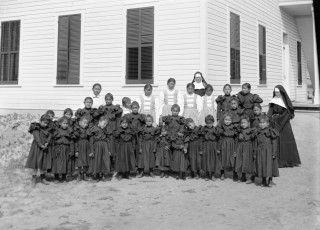Behind the Scenes at NHMU: Ethnography Collections
NHMU's collections are home to nearly 2 million objects held in stewardship for the people of Utah. From massive fossils to tiny fungi, delicate pottery to thousands of preserved insects, the Museum's collections are a vast and growing record of natural history in Utah and beyond. With consideration for preservation and research, much of the collections are off limits to Museum guests — which means only a small fraction of the objects within our collection are available for public display.
We’re always looking for ways to give visitors a behind-the-scenes look at the exciting work and research happening at NHMU, which is why we’ve created mini collections tours for you to enjoy over your holiday break.
Explore our ethnography collection with NHMU’s Curator of Ethnography, Alexandra Greenwald, Ph.D., as she discusses the importance of the objects within our collection and the important conversations taking place between NHMU and members of Utah’s Native groups.
What is Ethnography?
Ethnography, a branch of anthropology, is the study of living cultures and their histories. Unlike archaeology and paleontology, which must piece together the past from only material remains, ethnography has the advantage of studying cultures not just from their material objects, but also through conversations with living people who can explain their cultures’ histories, beliefs, practices, and perspectives.
Meet Alexandra Greenwald, Ph.D.
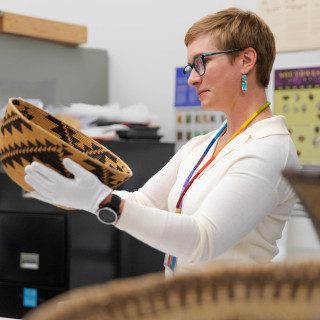
Alexandra Greenwald, Ph.D., is an Assistant Professor of Anthropology in the Department of Anthropology and a Curator of Ethnography at the Natural History Museum of Utah at the University of Utah. Greenwald earned her B.A. at Mills College and her M.A. and Ph.D. at University of California, Davis. She held a post-doctoral fellowship at the Center for Evolution and Medicine and the School for Human Evolution and Social Change at Arizona State University prior to arriving at the University of Utah in 2019.
Greenwald’s expertise is in North American prehistoric archaeology and ethnography, behavioral ecology, biological anthropology, and bioarchaeology. Research conducted in Greenwald’s Archaeometric and Ethno-Experimental Lab (AELab) seeks to reconstruct prehistoric lifeways and understand the cultural continuity between ancient people and their historic and contemporary descendants using ethnography, archaeological data, collections-based research, and experimental methods. Projects include cross-cultural isotopic reconstruction of breastfeeding behavior and early childhood diets in collaboration with descendant communities, archaeological investigations into the Pleistocene-Holocene transition in California and the Colorado Plateau, energetics and behavioral ecology of Indigenous cradle technology, the biomechanics of ancient footwear, and collections-based ethnographic work with tribal communities across the Great Basin, Colorado Plateau, and Southwest.
1 of 7
